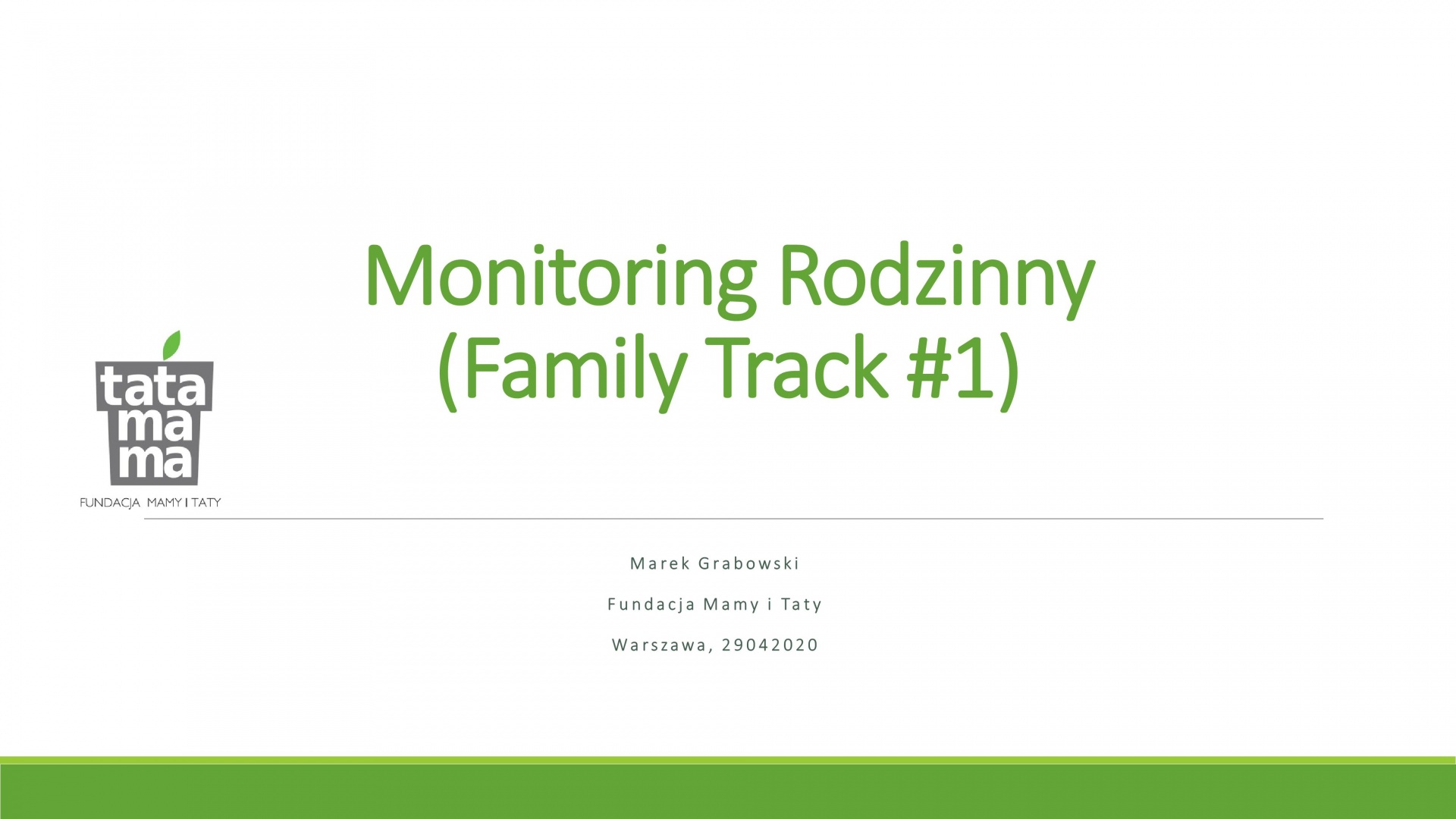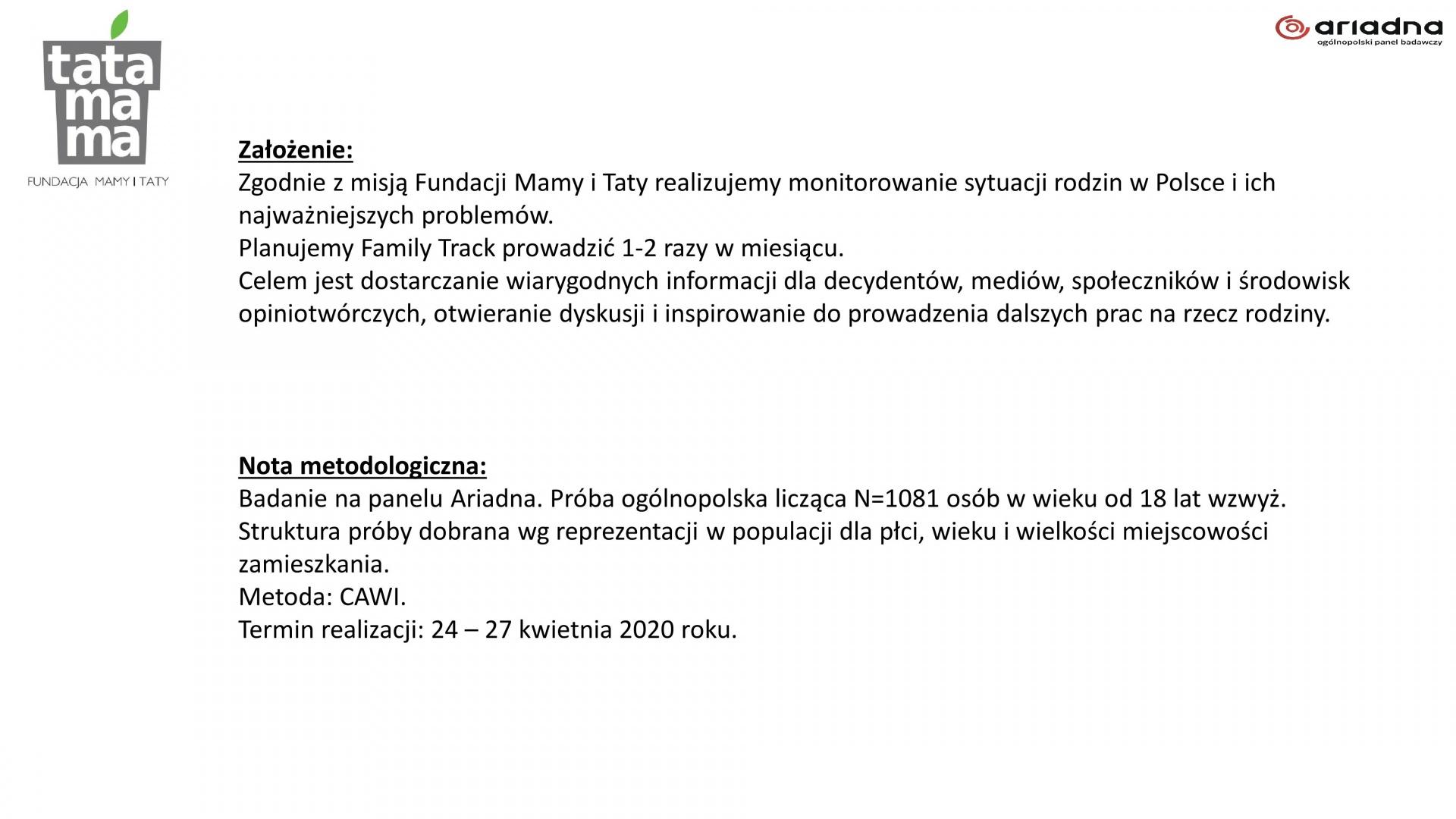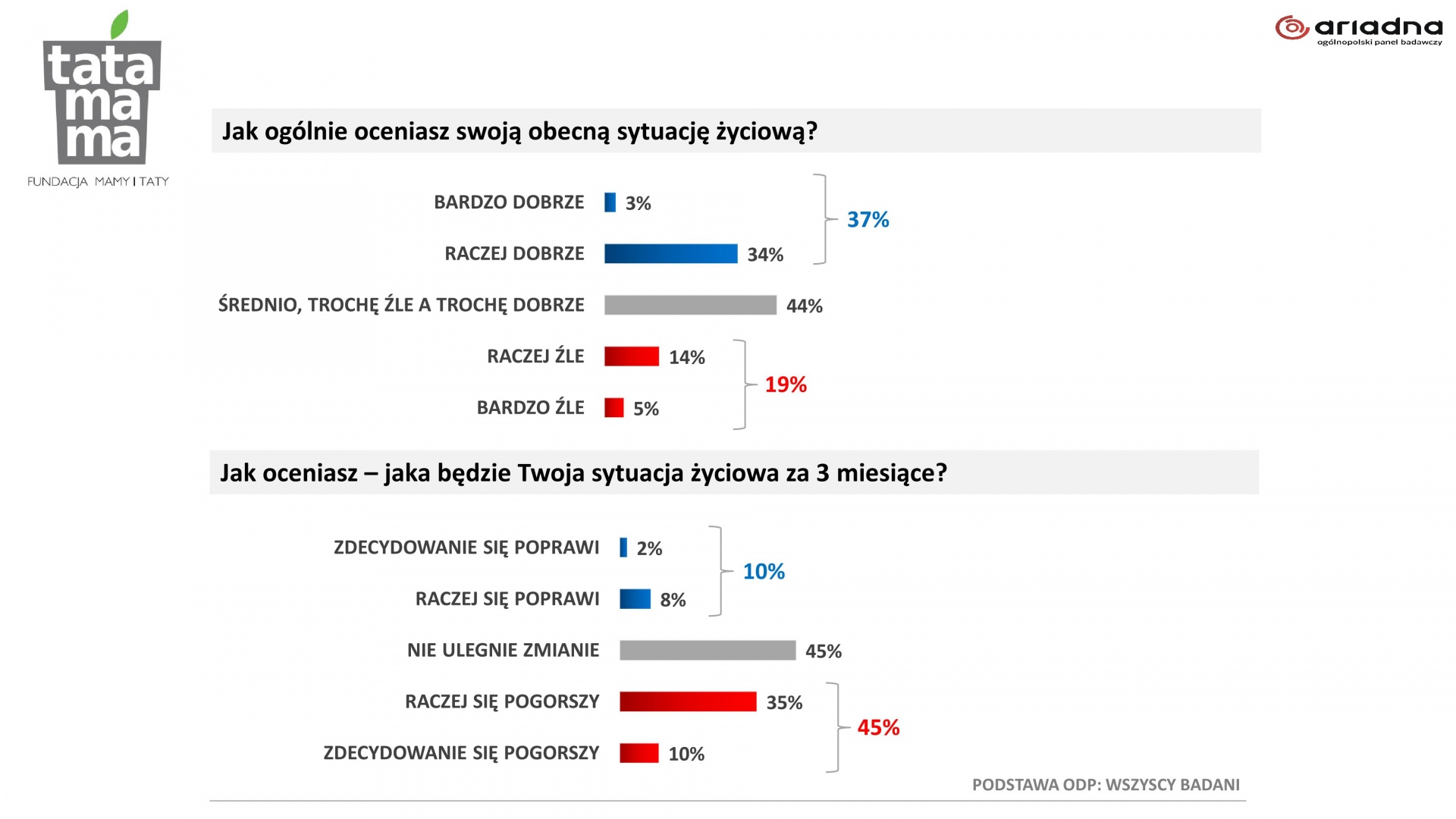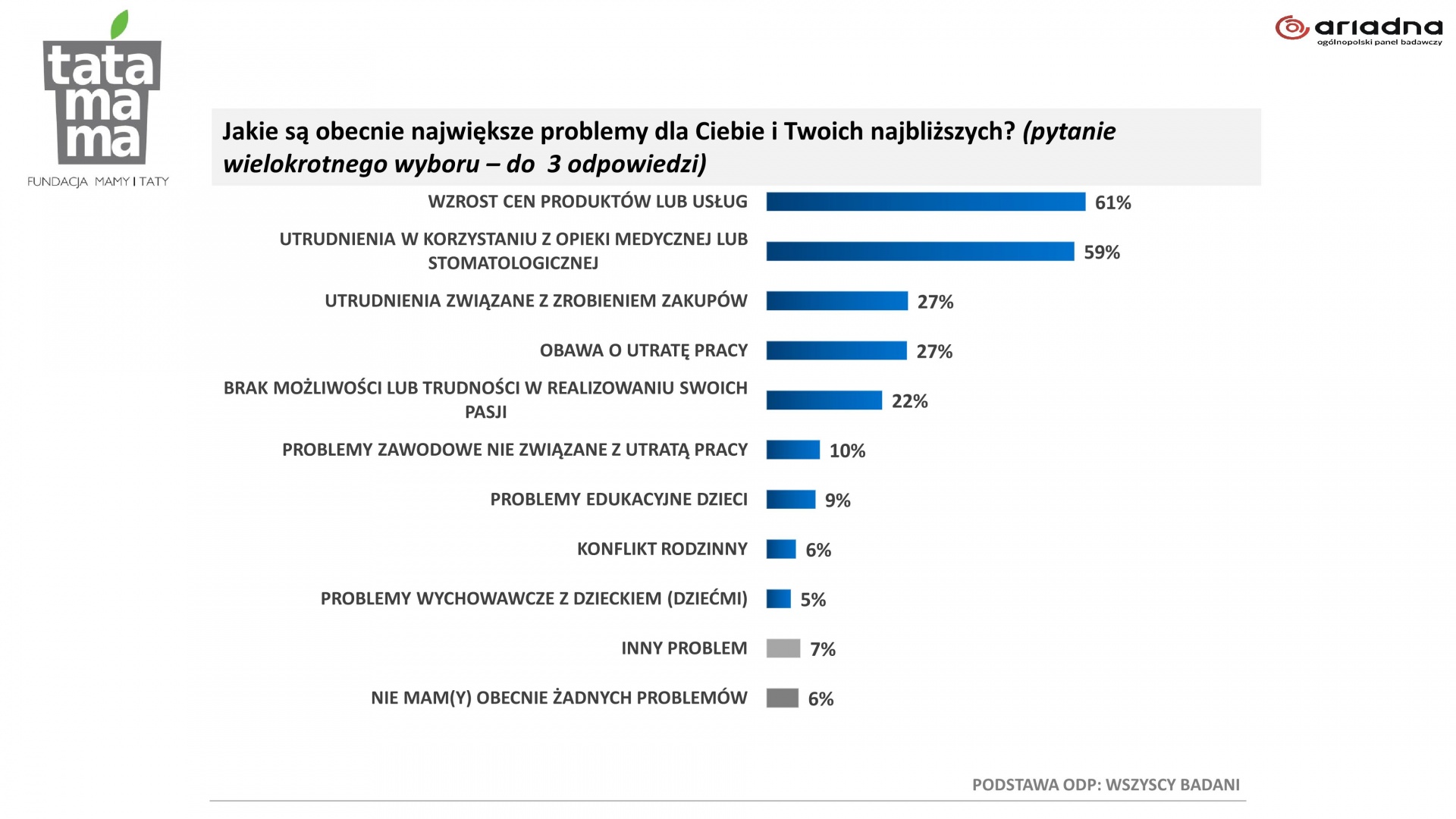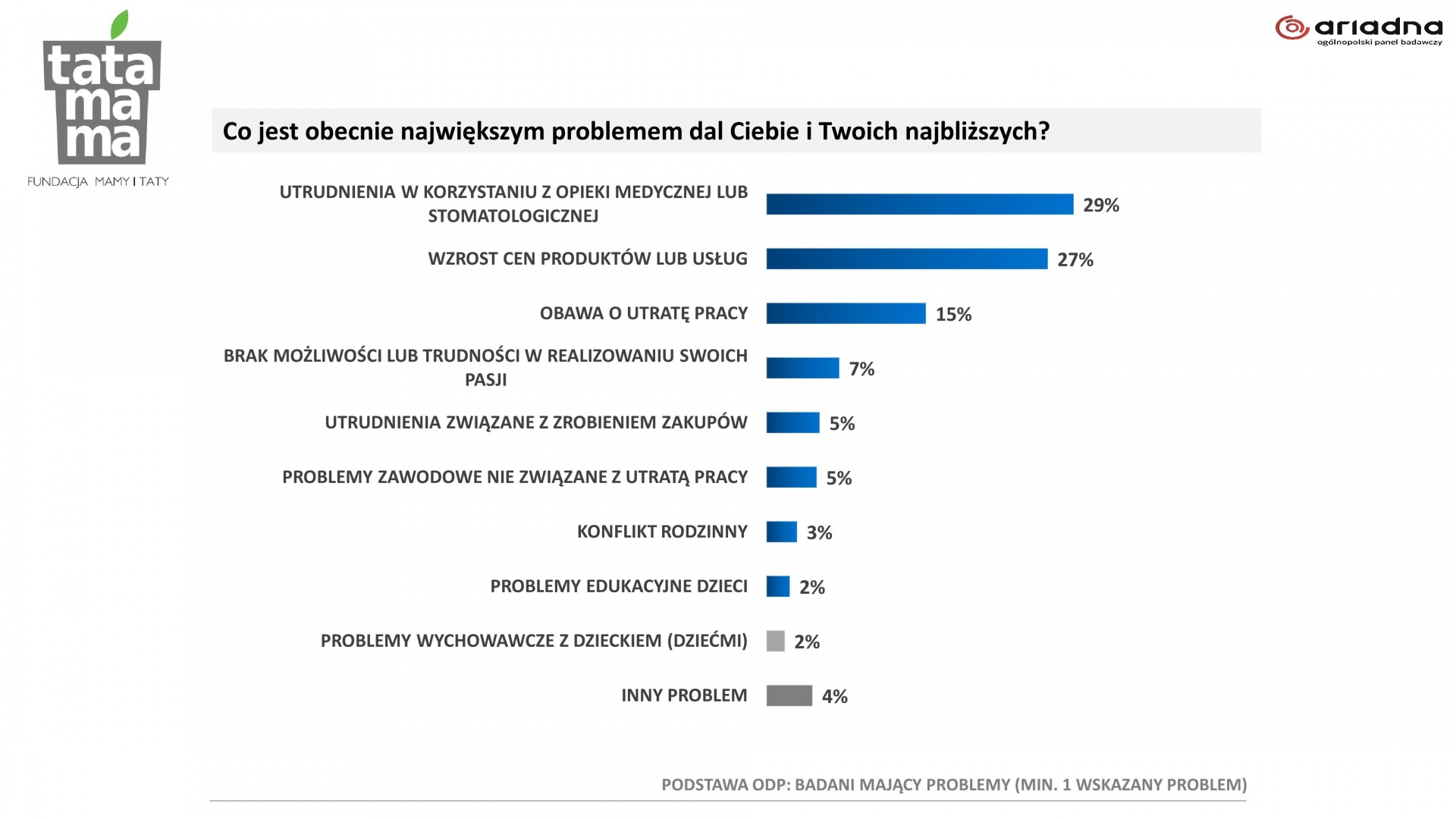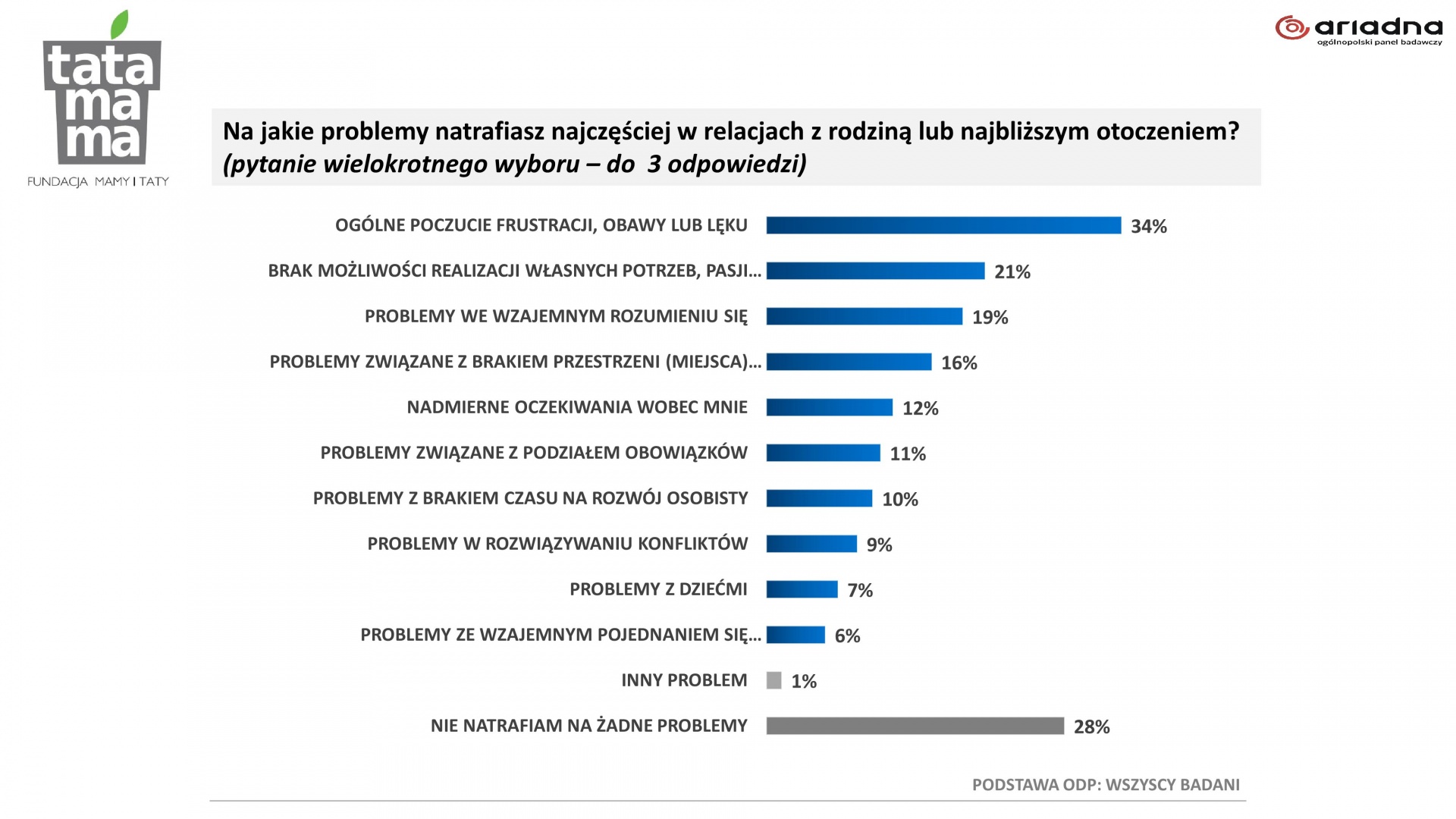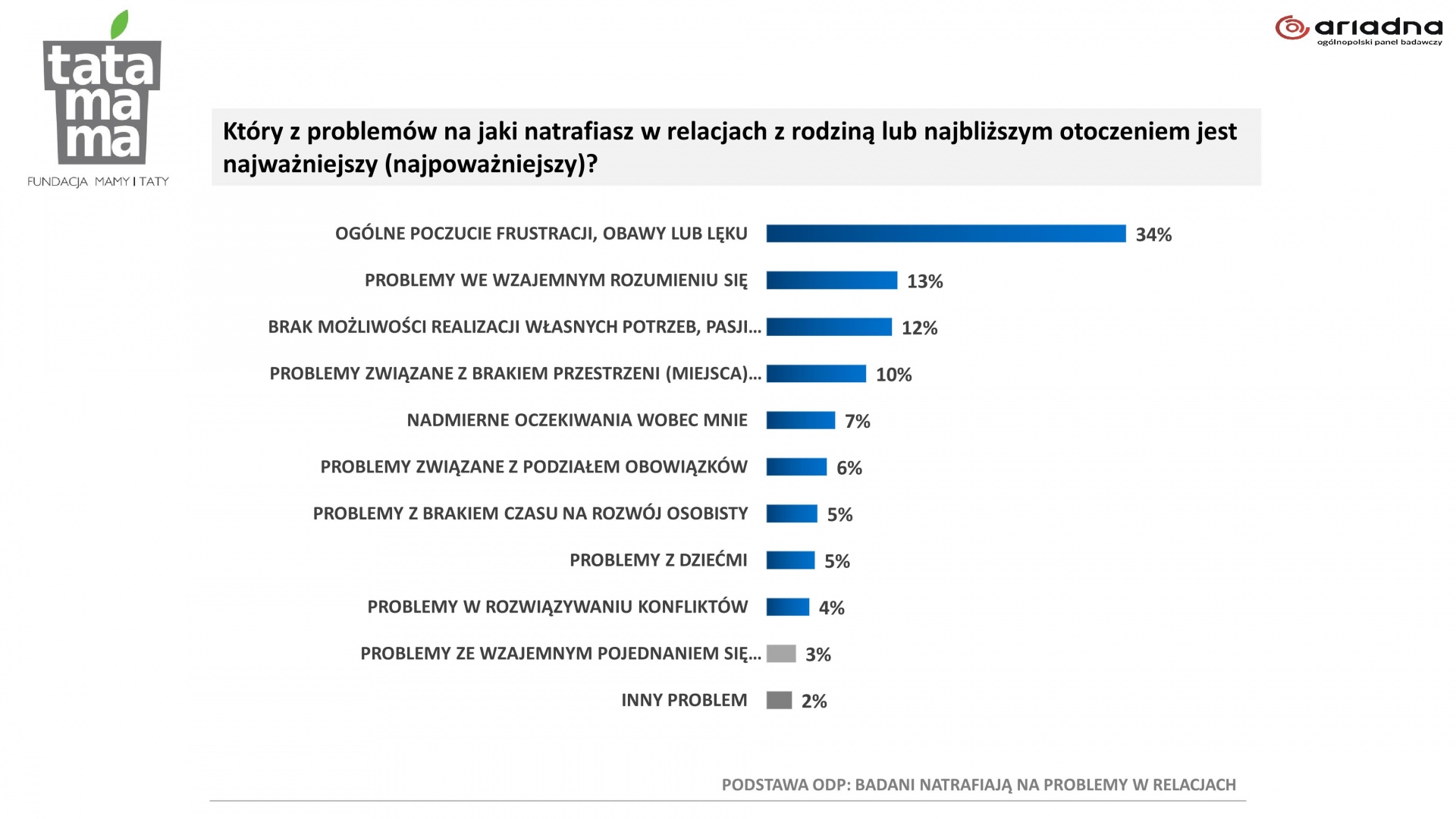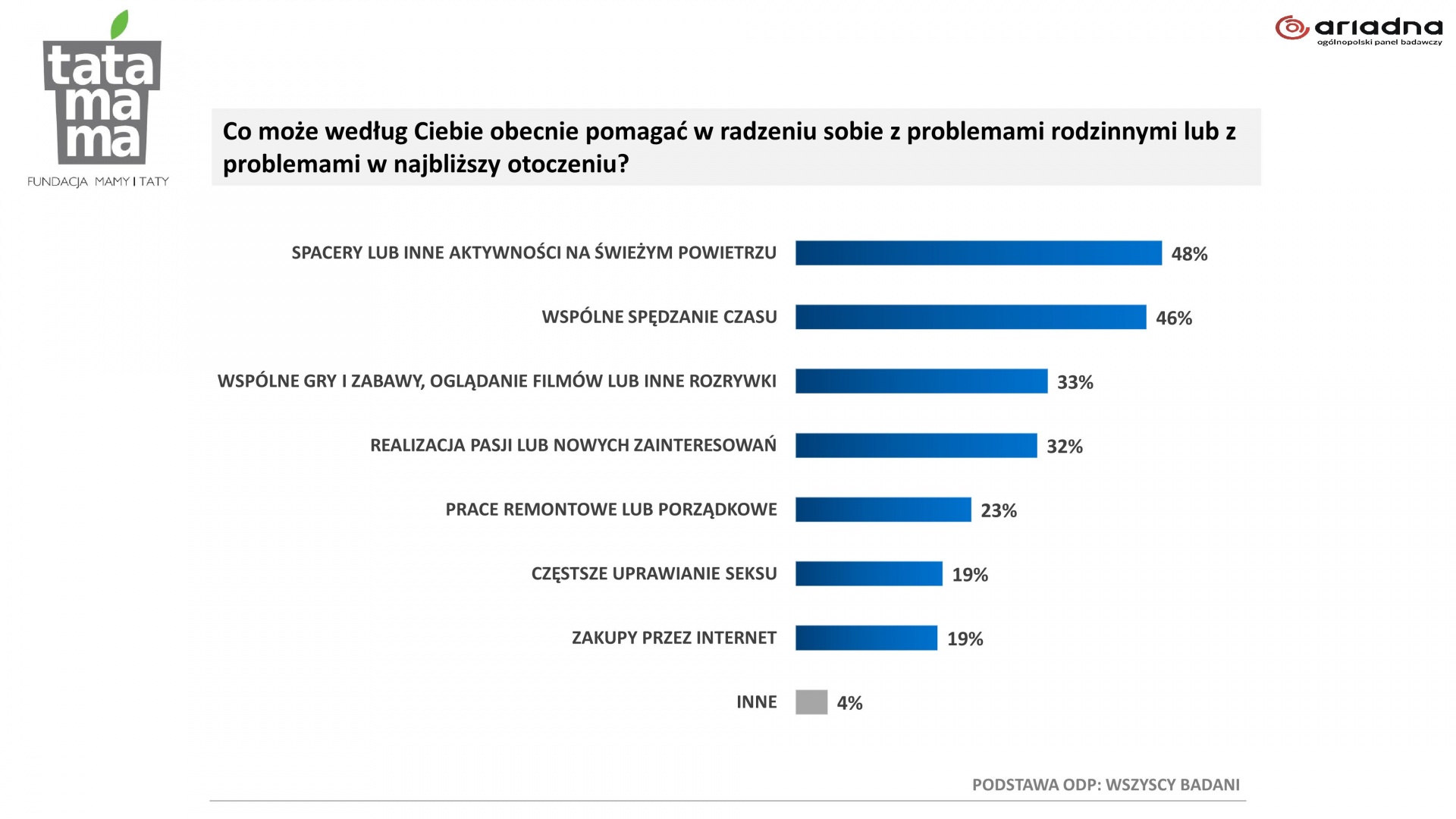Marta Dzbeńska-Karpińska talks to Marek Grabowski, President of the Mum and Dad Foundation, Deputy Chairman of the Family Board established by the Ministry of Family, Labour and Social Policy, head of the Social Changes Public Opinion Research Facility.
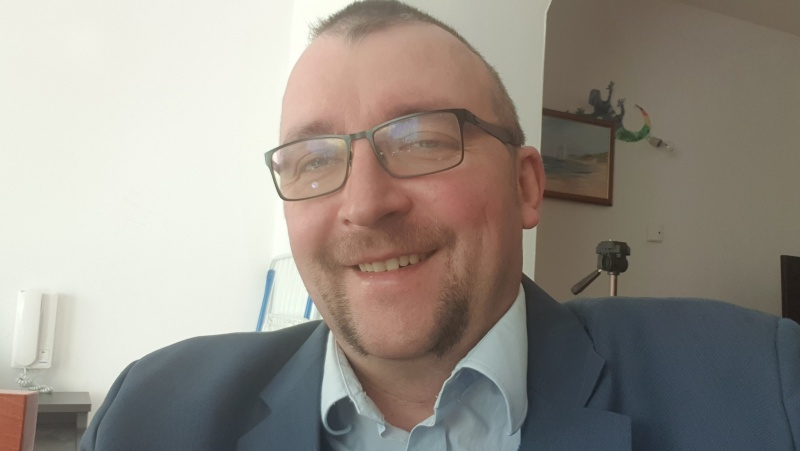
The Family Track project is underway. What does it entail?
For some time now at the Mum and Dad Foundation we have been thinking about monitoring the situation of families in Poland. Then Covid-19 appeared and we have had to postpone our plans to a time when the initial emotions settle. At the Social Changes Public Opinion Research Facility we regularly carry out and analyse surveys and keep an eye on the social sphere. This means that I saw the results changing from week to week – a clear sign of frustration. After Easter I decided that emotions have settled somewhat and that as a society we have gotten used to the new situation and that it was time to return to the Family Track project.
The survey is carried out on a representative sample. We are planning to conduct it once every two to four weeks, as and when required. Once the situation becomes more stable, a monthly survey will be quite sufficient, but as long as there is a pandemic we want to do it every two weeks.
What is the purpose of the survey?
As in all the years of the Foundation's activity so far, we are focusing on providing knowledge to people interested in family related matters – decision-makers, community members, people active in non-governmental organizations, the media. When it comes to the media, surveys are a kind of a magnet that bring family and family matters to the forefront.
We published the first report without any comments or conclusions. The next one will contain them and we are also planning to compare the results. In principle, we want conduced survey to show us how respondents assess their life situation at the given time and how they see it in the perspective of three months.
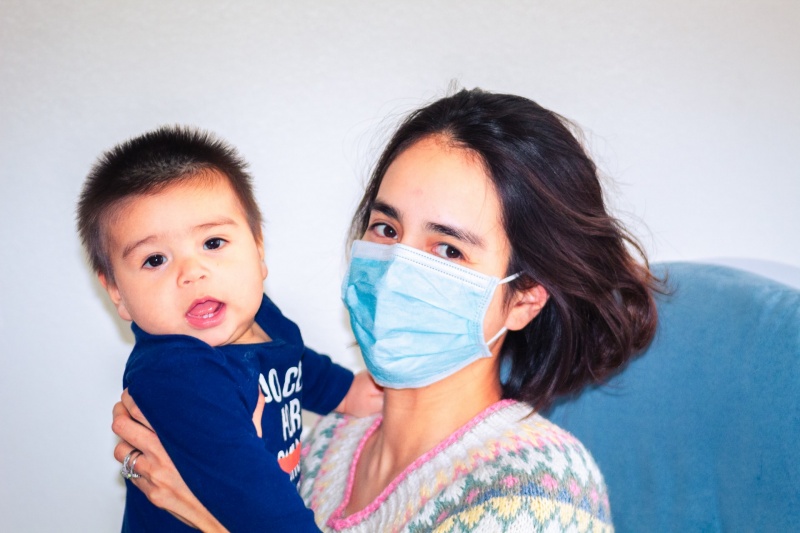
What is the picture of the family that emerges from your research?
One might say that it is not only a picture of a family, but of the whole society. The Polish society is keeping its feet firmly on the ground and is not panicking, as suggested by the very general, synthetic life situation assessment index, where 37% of the respondents assess it positively, 19% negatively, and 44% as average. 45% of people said the situation may deteriorate, so we are aware of the risks.
What concerns us today, above all, in social psychology is called the foundation of the Maslow pyramid – we are worried about the basic things, concerning the existence of the family. This is indicated by responses that show concern about increasing product prices and the difficulties in receiving medical and dental care. As many as two thirds of the respondents seem to concur.
Problems associated with everyday life constitute a second group of problems – on the one hand, the fear of losing one's job, but also the difficulties connected with shopping or the possibility of pursuing one's passions.
And interpreting the answers to the third group of problems is a mystery. We conducted two internal expert workshops on the subject, because we wondered why issues related to children's education or problems within the family are rarely indicated by the persons participating in the survey. As a result of our discussions, we have two divergent interpretations, although they are not in direct opposition to one another and it may turn out that the first interpretation is true for one social group and the second for another. On the one hand, it may be that our families function quite well, we are used to them, living within their boundaries is a natural state for us – they are like the air we breathe every day without realizing it until we were told to wear masks. The second interpretation – less optimistic this time – is based on the fact that the general state of families is not the best, as our Foundation has repeatedly said. Due to the fact that the state is not good, the topic of the family is not the main concern of the respondents, because it is difficult to make it worse in the context of Covid-19. Therefore, they are focusing on hard problems - work and availability of medical services.
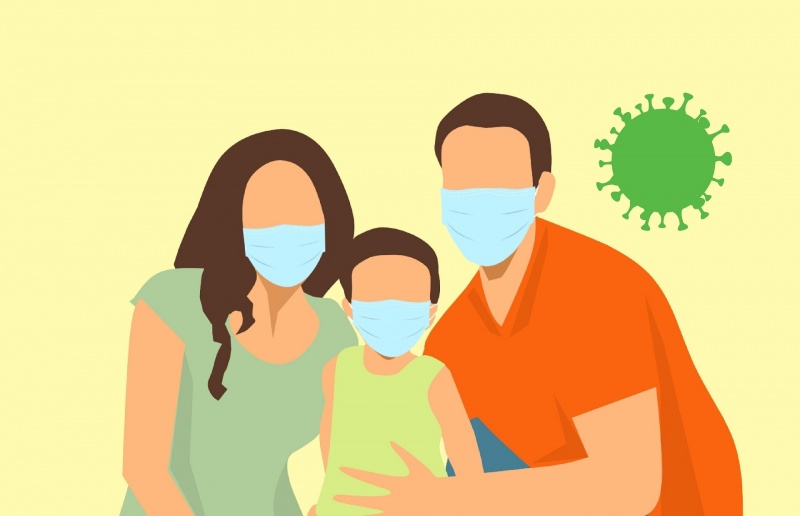
Our respondents point out that within families we do not get along, that we lack space for ourselves, that we feel burdened with the expectations of other family members, the division of responsibilities, that we lack time and space for individual development and for staying alone. However, taking a more optimistic point of view, it was after these months of isolation that we found ways to deal with the situation – walks, spending time together, games, playing, looking for new interests, catching up, learning languages. For example, after twenty-five years of break, I myself returned to practicing guitar. I think, although these are not the direct conclusions from our survey, that the family situation in Poland will develop in two directions. Some families will experience erosion, because old and new conflicts will become the last nail in the coffin of a given marriage or cohabitation. For other families it can be a strengthening experience. The limited space and various restrictions have highlighted the shortcomings of individuals. However this can be a motivating element to work on yourself and your relationship. It might help us to better appreciate what we have. In summary I see two possible directions. For the time being of course it's hard to say what the percentages might look like. In a few months' time, with a number of Family Track surveys under our belt and once we've had the chance to ask a few additional questions, we may be able to assess it precisely.
You've mentioned expanding the surveys. What questions would you like to find answers to?
We were intrigued by an answer to the following question: "What problems do you encounter in your relations with the family or those in your immediate surroundings?" 34% of people, having to choose one, the most serious problem, speak of a general feeling of frustration, fear or anxiety, something hard to define. In the latest survey we want to ask people who choose this answer to determine what is the main source of their frustration – is this a general "bad climate" at a time when basically all the conversations are about covid, work, problems with home education? On top of that, the media ensures constant fuelling of concern. These factors, combined with confinement in small spaces, can cause fear and anxiety. This is also evident on the streets, where people walk at a distance from one another, avoiding eye contact.
We want to add questions about the current political situation, which may be worrying in the context of what will happen next with our country. It can also be a generator of conflicts within a family or a relationship. We know this from autopsy, because when two people meet at a Christmas or Easter table, one of whom is a Z party voter and the other a Y party follower, we often have a ready war recipe.
We are planning to prepare a block of questions about home education. We will include this element in our survey when the school year is over.
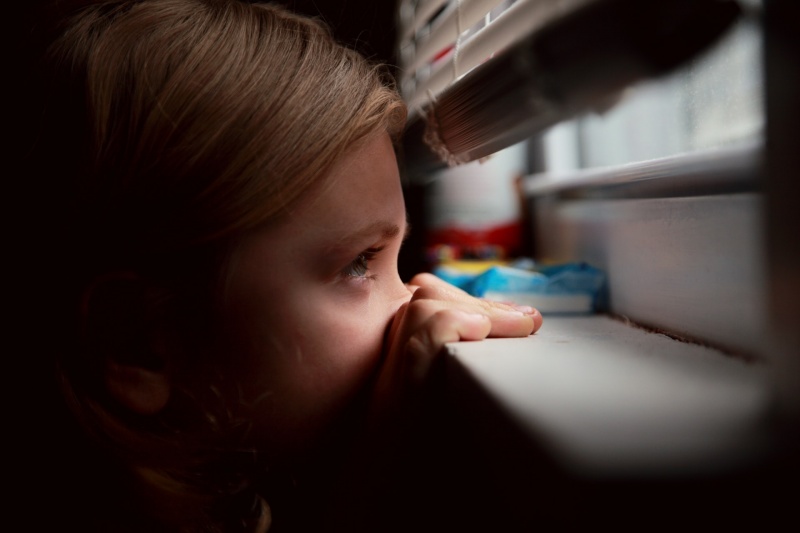
Will you propose to implement specific actions to address the problems revealed by the surveys?
Both in connection with these studies and other analyses that we are conducting, as a member of the Family Council at the Ministry of Family, Labour and Social Policy, I submitted several demands to the Council, which were positively received. This includes financial support for the purchase of computer equipment for the poorest families, encouragement for cultural facilities to enter the online sphere and the ensuring consistency of fines issued by Sanepid and the police. These are not the activities that our Foundation is publicizing, even though they are much needed. People in the government and local authorities may not notice some things and here the voice of pro-family, parental organizations is very important.
Thank you very much for the interview.
Photographs: Marek Grabowski's private collection, Unsplash, Pixabay
